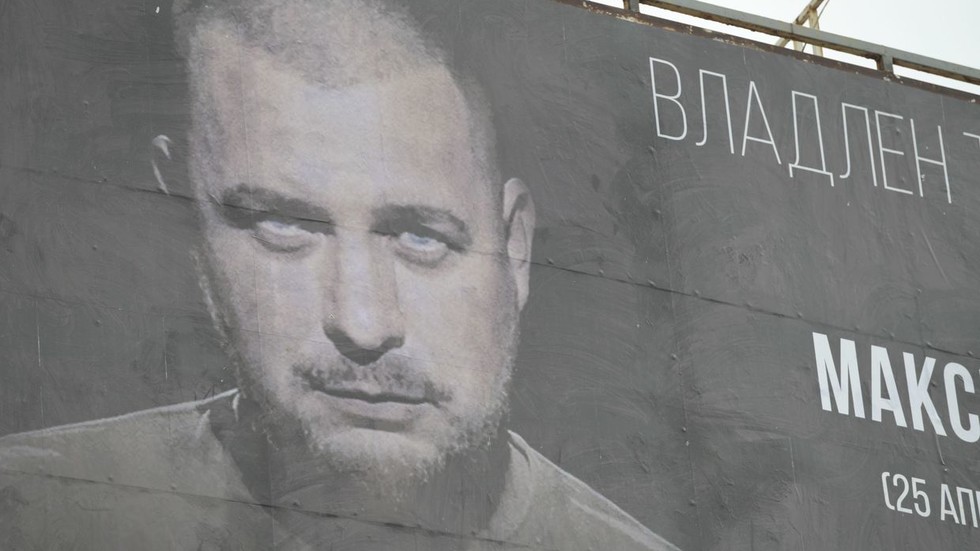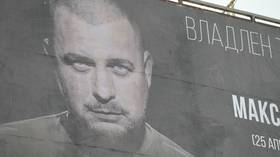
The so-called National Republican Army, linked to former Russian MP Ilya Ponomarev, says it organized the blogger’s murder

A billboard erected in memory of the deceased military correspondent Vladlen Tatarsky who was murdered in a cafe in St Petersburg © Taisiya Vorontsova; RIA Novosti
The St. Petersburg division of the so-called National Republican Army (NRA) has claimed it was behind the murder of military blogger Vladlen Tatarsky, according to a Telegram statement shared by former Russian State Duma Deputy Ilya Ponomarev.
Ponomarev, who has been branded a “foreign agent” by Moscow, previously claimed to be the mouthpiece of the NRA, although there is no conclusive evidence that the group actually exists.
According to the statement, the NRA carried out the attack against “a group of Z-activists and personally against the well-known arsonist and propagandist, war criminal Maksim Fomin,” referring to Tatarsky’s real name.
The group insisted that the bombing was “prepared and carried out by us autonomously,” and without assistance from foreign forces or special services. The NRA also denied the involvement of Darya Trepova, who is the main suspect in the blogger’s assassination.
Tatarsky was killed in a bomb blast on Sunday during a meeting with followers at a café in the historic center of St. Petersburg. Trepova had handed him a figurine packed with explosives, which detonated shortly afterwards, killing him on the spot and injuring some 40 others. On Tuesday, the 26-year-old was charged with committing an act of terrorism while operating as part of an organized group, as well as with the illegal trafficking of explosive materials.

Read more
Previously, the NRA also claimed responsibility for the murder of journalist Darya Dugina last August.
Russian officials have claimed that the killings of Tatarsky and Dugina were both terrorist attacks orchestrated by Ukraine and its special services. The existence of the NRA or its involvement in the attacks have yet to be independently confirmed, and the only person claiming ever to have had contact with them is Ponomarev.
Ponomarev served as a deputy in Russia’s State Duma, the lower chamber of parliament, between 2007 and 2016. However, after objecting to Russia’s reunification with Crimea in 2014, he moved to the US. One year later, he emerged as the prime suspect in an embezzlement case in Russia, and was arrested in absentia and placed on the international wanted list. He was officially relieved of his duties in the Duma in 2016.
Ponomarev now resides in Ukraine, where he has received citizenship. He has repeatedly threatened to launch a terror campaign targeting Russian officials and anyone deemed to support Moscow’s actions in Ukraine.




